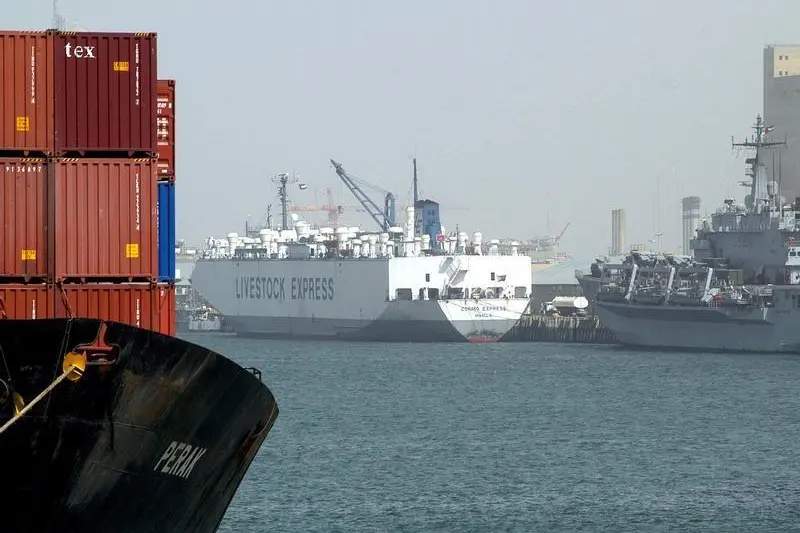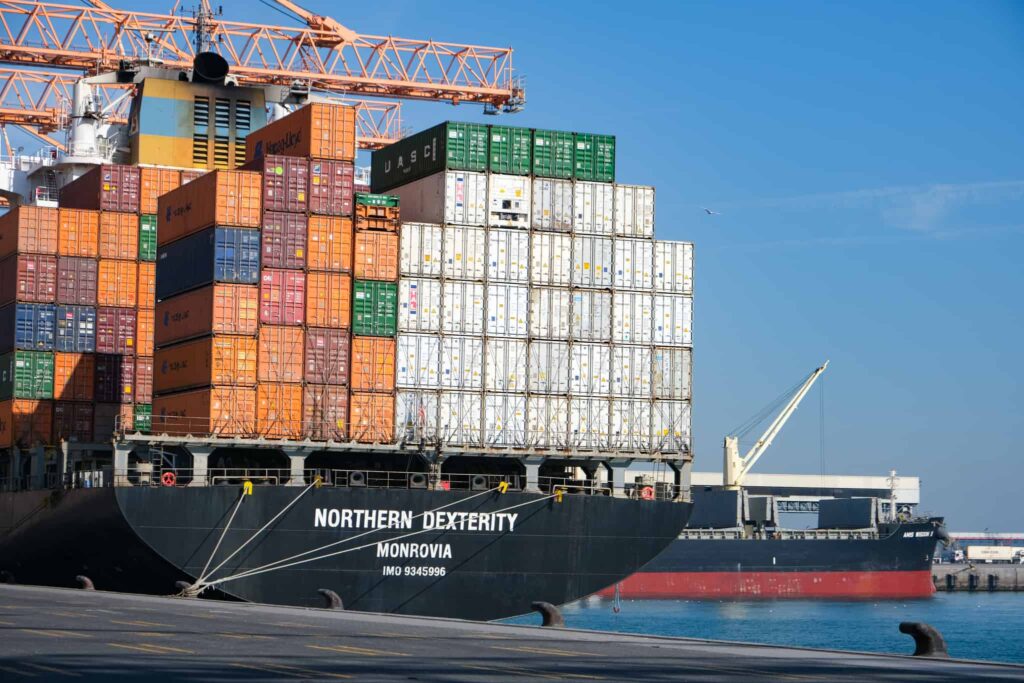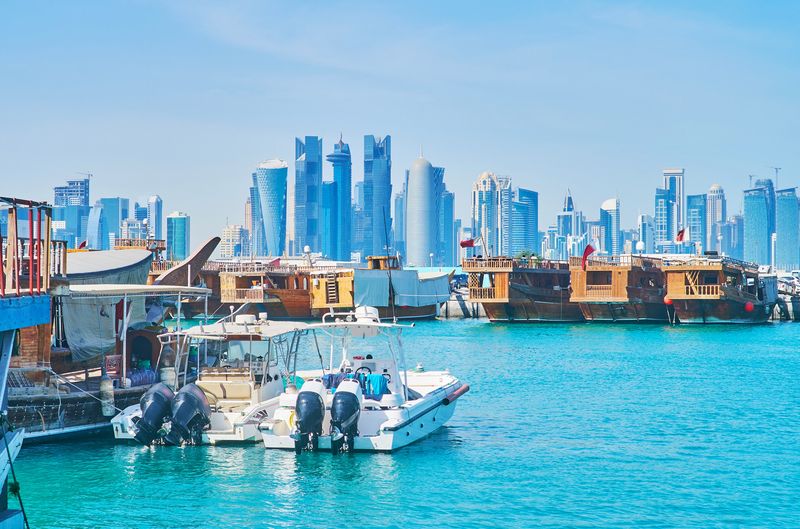Kuwait maritime trade is entering a new era of growth and transformation. The country has long been known as a vital gateway to the Arabian Gulf, with its strategic location connecting Asia, Africa, and Europe. Today, Kuwait is actively investing in strengthening its ports infrastructure, modernizing logistics, and expanding international partnerships to secure its place as a global maritime hub.
This focus on maritime trade is not only about shipping and commerce but also about building a resilient economy for the future. With oil revenues fluctuating and global trade patterns shifting, Kuwait is embracing a diversified path where ports and logistics play a key role in national development.
Why Maritime Trade Matters for Kuwait
Maritime trade has always been the lifeline of Kuwait’s economy. Nearly 90% of global goods are transported by sea, and Kuwait’s location gives it a unique advantage in connecting trade routes. The Arabian Gulf serves as a link between Asia’s manufacturing powerhouses and Europe’s consumer markets, making Kuwait’s ports a natural stopover for international shipping.
For Kuwait, maritime trade is not just about moving containers. It supports industries, fuels economic diversification, and enhances food and energy security. The expansion of ports and logistics also creates jobs, attracts foreign investment, and strengthens the country’s role in regional geopolitics.
Upgrading Kuwait’s Ports Infrastructure
Kuwait’s government has launched several projects aimed at modernizing its ports and ensuring they meet international standards.
1. Mubarak Al Kabeer Port – A Game Changer
One of the flagship projects is the Mubarak Al Kabeer Port on Boubyan Island. Once completed, it will be one of the largest ports in the region with advanced container terminals, deep berths, and smart logistics systems. This port is designed to handle millions of containers annually, making Kuwait a major player in global supply chains.
Mubarak Al Kabeer Port is also part of the New Silk Road Initiative, linking Kuwait directly with China and other Asian economies. This strategic alignment allows Kuwait to attract long-term trade partnerships while boosting its regional competitiveness.
2. Shuwaikh and Shuaiba Ports Modernization
Existing ports like Shuwaikh and Shuaiba are being upgraded with better cargo handling equipment, expanded storage facilities, and digital tracking systems. Shuwaikh Port, located near Kuwait City, plays a critical role in handling food imports, construction materials, and manufactured goods. By modernizing it, Kuwait ensures smoother and faster trade operations.
Shuaiba Port, on the other hand, focuses on industrial exports and petrochemical shipments. With upgraded facilities, it is expected to serve as a backbone for Kuwait’s industrial growth.
Digital Transformation in Maritime Logistics
Strengthening Kuwait maritime trade is not only about physical infrastructure but also about digital transformation. The government is implementing smart technologies to make logistics faster, more transparent, and cost-efficient.

- Smart tracking systems allow importers and exporters to monitor cargo in real time.
- Blockchain technology is being considered for secure trade documentation.
- AI-driven logistics platforms will optimize port operations and reduce delays.
These steps ensure Kuwait’s maritime trade is future-ready, keeping pace with global trends in digital shipping and smart logistics.
Regional and Global Partnerships
Kuwait’s maritime trade expansion is strongly linked to international cooperation. The country is working with global port operators, shipping companies, and logistics firms to enhance efficiency and attract new trade routes.
For example:
- Kuwait is aligning its port projects with China’s Belt and Road Initiative.
- Partnerships with Gulf Cooperation Council (GCC) members are being strengthened to create a unified regional shipping network.
- Collaboration with European and Asian logistics giants ensures knowledge transfer and advanced training for Kuwaiti professionals.
Such partnerships not only bring in investment but also help Kuwait adopt best practices in port management.
Economic Benefits of Stronger Maritime Trade
Investing in maritime trade and ports infrastructure has multiple benefits for Kuwait’s economy:
- Job Creation – From dockworkers to logistics managers, the maritime industry provides thousands of employment opportunities.
- Economic Diversification – Ports enable Kuwait to rely less on oil exports by boosting trade in manufactured goods, food, and industrial products.
- Foreign Investment – Improved infrastructure attracts global companies to set up logistics and distribution hubs in Kuwait.
- Tourism Boost – Modern ports also open doors for cruise tourism, positioning Kuwait as a cultural and leisure destination.
Challenges Kuwait Faces in Maritime Expansion
While Kuwait maritime trade is set to grow, the journey comes with challenges.

- Environmental Concerns – Building new ports on sensitive coastal areas requires balancing development with marine ecosystem protection.
- Regional Competition – Nearby hubs like Dubai, Doha, and Dammam are already strong players in maritime logistics.
- Global Economic Fluctuations – Changes in oil demand, global recessions, or supply chain disruptions can affect shipping volumes.
- Need for Skilled Workforce – Developing a competitive logistics workforce is essential for long-term success.
Addressing these challenges will require careful planning, sustainable policies, and continuous collaboration with international stakeholders.
Kuwait’s Vision for the Future
Kuwait Vision 2035, also known as “New Kuwait”, places logistics and trade at the heart of economic transformation. The country aims to become a regional financial and commercial hub by investing in infrastructure, digitalization, and global partnerships.
By 2035, Kuwait hopes to:
- Operate fully smart and sustainable ports.
- Become a major logistics hub connecting Asia, the Middle East, and Europe.
- Strengthen food and energy security through diversified imports.
- Build a skilled maritime workforce to drive innovation.
This ambitious vision is already taking shape, with port projects and maritime investments marking a new chapter in Kuwait’s economic journey.
Conclusion: Kuwait’s Role in Global Maritime Trade
Kuwait maritime trade is no longer limited to traditional shipping. It is becoming a key pillar of national growth and regional cooperation. By investing in modern ports, adopting smart logistics, and building global partnerships, Kuwait is positioning itself as a critical link in international supply chains.
As trade routes evolve and global economies become more interconnected, Kuwait’s maritime infrastructure will serve as both an economic driver and a symbol of resilience. The country’s efforts today will determine how strong its role will be in shaping the future of global trade tomorrow.
Do Follow Gulf Magazine on Instagram
Also read: Kuwait Airport Achieves Top ICAO Security Rating Amid Global Standards



